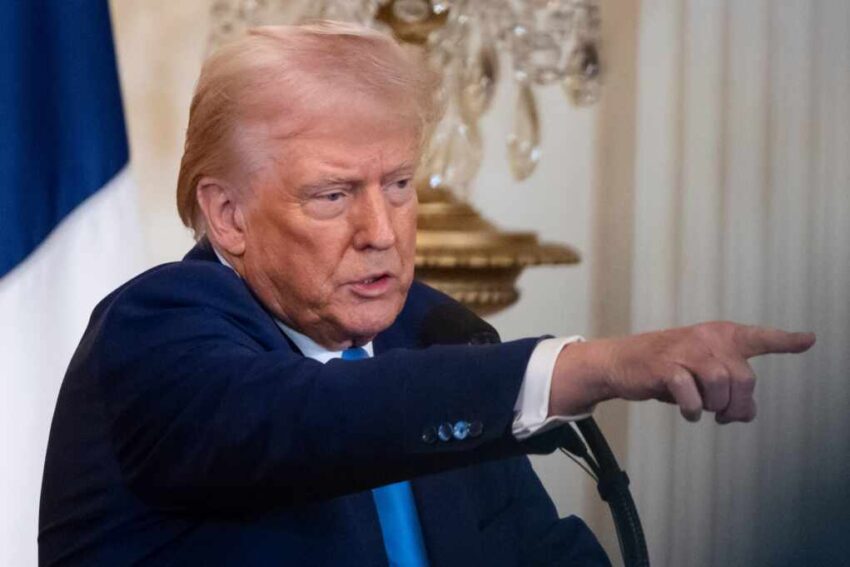President Trump’s new executive orders threaten to strip federal funds from cities that continue cashless bail policies, marking a decisive federal pushback against progressive criminal justice reforms many conservatives blame for surging crime and eroding public safety.
Story Snapshot
- President Trump signed executive orders to eliminate cashless bail nationwide, targeting jurisdictions with progressive bail reforms.
- The orders threaten to revoke federal funding from non-compliant cities and declare a “crime emergency” in Washington, D.C.
- Supporters argue this move restores public safety and common sense, while critics warn of legal and social consequences.
- The orders escalate the clash between federal power and local autonomy, reigniting debates on criminal justice and constitutional principles.
Trump’s Executive Orders: Nationwide Crackdown on Cashless Bail
On August 25, 2025, President Trump signed two sweeping executive orders aimed at ending cashless bail across the United States. These directives instruct the Department of Justice to identify jurisdictions that have significantly rolled back cash bail and to withhold or revoke federal funding from those that refuse to reinstate it. A separate order declares a “crime emergency” in Washington, D.C., directing maximum federal pretrial detention for suspects deemed threats to public safety. The White House stated the initiative responds to public concern over crime rates, which some law enforcement groups attribute to bail reforms. However, studies cited by the Brennan Center for Justice indicate that there is limited empirical evidence linking bail reform directly to crime increases.
The Trump administration’s approach marks a dramatic reversal of the policies adopted by several left-leaning states and cities over the past decade. Cashless bail, which was introduced to reduce inequities in pretrial detention for low-income individuals, has been criticized by some law enforcement leaders, including the National Sheriffs’ Association, who argue it increases risks of repeat offenses. Advocates for reform, such as the American Civil Liberties Union (ACLU), counter that such policies reduce unnecessary incarceration without increasing crime. The President’s orders leverage federal funding as a tool, compelling compliance from local governments by threatening to cut off crucial grants and resources if they do not abandon cashless bail for certain offenses.
Federal vs. Local Authority: Constitutional Questions and Political Tensions
The new executive orders intensify the ongoing struggle between federal authority and local or state autonomy. By tying federal grants to compliance with bail policy, the administration invokes a tactic previously used in other contentious policy areas, such as immigration enforcement. This approach, however, is expected to face swift legal challenges from Democratic-led jurisdictions, civil liberties groups, and advocates who argue it infringes on local governance and may exceed the constitutional limits of executive power. The orders also reignite the debate over whether federal intervention undermines the foundational principle of states’ rights, a cornerstone concern for many conservative Americans wary of government overreach.
Supporters, including the Police Benevolent Association, argue that reinstating cash bail could strengthen accountability in the justice system. Legal experts, such as Professor Erwin Chemerinsky from UC Berkeley Law, caution that the federal government’s attempt to tie funding to bail policy may face constitutional challenges in court. They contend that the proliferation of cashless bail policies has led to more dangerous individuals being released before trial, jeopardizing community safety and eroding public trust. Critics, meanwhile, warn that the orders could disproportionately impact low-income and minority communities, swell jail populations, and overstep legal boundaries, setting the stage for a likely battle in federal courts.
Consequences for Cities, Law Enforcement, and the Criminal Justice System
Jurisdictions with cashless bail policies now face immediate uncertainty and the risk of losing significant federal funding, which could impact public safety initiatives, social services, and local infrastructure. Law enforcement agencies and judicial systems are preparing to adjust to new federal directives, with some welcoming the shift toward stricter pretrial detention and others bracing for administrative and legal upheaval. The prospect of increased jail populations and budgetary strain looms large, especially for cities heavily reliant on federal support. The orders also have broader political implications, intensifying the partisan divide over criminal justice reform and likely influencing voter sentiment heading into the 2026 midterms and the upcoming 2028 Olympics, for which the administration has stressed the need for “spotless” cities.
Trump Signs Order Aimed at Eliminating Cashless Bailhttps://t.co/KT7Ibk1AgZ
Shared via Right News: https://t.co/gFRfbSPyiG
— huston,we have a problem. My pronouns are send/rip (@Huston1313David) August 25, 2025
Experts report divergent views: law enforcement associations, such as the National Association of Police Organizations, generally support stricter pretrial policies, while legal scholars, including Professor Shon Hopwood of Georgetown University Law Center, warn that conditioning federal funds in this way could face Supreme Court scrutiny under limits set by previous federalism rulings. Criminologists point to mixed evidence regarding the actual impact of bail reform on crime rates, further fueling the policy debate. Despite these uncertainties, the Trump administration’s orders have already reshaped the national conversation, putting progressive bail reforms on the defensive and signaling a new era of federal involvement in local criminal justice practices.
Sources:
ABC News – Cashless Bail: Trump Executive Orders
LA Times – Trump Signs Executive Order on Cash Bail
Official White House Executive Order: Measures to End Cashless Bail
Click this link for the original source of this article.
Author: Editor
This content is courtesy of, and owned and copyrighted by, https://republicanpost.net and its author. This content is made available by use of the public RSS feed offered by the host site and is used for educational purposes only. If you are the author or represent the host site and would like this content removed now and in the future, please contact USSANews.com using the email address in the Contact page found in the website menu.





